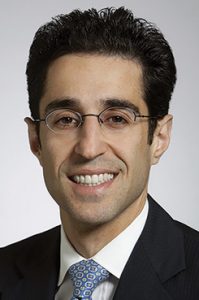Kirkland, Gibson Dunn, and Watchell Advise on $4.4B Travelport Worldwide Acquisition
M&A deal gives private equity players control of travel technology pioneer.
December 10, 2018 at 05:16 PM
3 minute read
 Photo by Diego M. Radzinschi/ALM Media
Photo by Diego M. Radzinschi/ALM Media
Kirkland & Ellis, Gibson, Dunn & Crutcher, and Watchell, Lipton, Rosen & Katz have taken lead roles on the announced $4.4 billion acquisition of U.K.- based travel technology firm Travelport Worldwide Limited by affiliates of Siris Capital Group and Evergreen Coast Capital, the private equity arm of activist investor Elliott Management Corp.
Kirkland corporate partners Daniel Wolf and Shaun Mathew advised Travelport on the deal. Gibson Dunn M&A and private equity partner Richard Birns and tax partner Eric Sloan acted as counsel to Evergreen. Wachtell attorneys advising Siris included corporate partners Andrew Nussbaum and Igor Kirman, antitrust partner Ilene Knable Gotts, finance partner Joshua Feltman, executive compensation and benefits partner Andrea Wahlquist, and tax partner Jodi Schwartz.
Expected to close in the second quarter of 2019, the deal gives the private equity players ownership of an innovator in the travel technology space whose IT systems and services are of value to airlines, car rental agencies, hotels, and business-to-business payment providers.
 Daniel Wolf
Daniel WolfKirkland partner Daniel Wolf sees the deal as partly a reflection of the needs of a tech company at a certain phase in its growth. When a tech firm has had a bit of time to develop its IP assets and build its business, it may cease to be a match for the investment strategies of tech investors looking for new firms with the potential someday to become the next big thing.
“As the tech companies that went public in the late 1990s up through 2010 start to mature, they're no longer growth stories, they're cash flow stories. There's a feeling that they are not getting properly rewarded in the public market because of the growth orientation of tech investors. Hence they become attractive acquisitions for the private equity firms,” Wolf said.
Another factor that makes tech companies riper acquisition targets for private equity players is that the latter tend to be more forgiving of the restructuring that tech companies often need to undertake after having focused more on innovation and IP than on the nuances of corporate governance over the years, Wolf observed.
The deal is the latest in a series of high-value transactions engineered by Wolf in the technology space. His recent engagements include advising technology firm Colfax Corp. on the $3.15 billion acquisition of DJO Global, representing Vista Equity Partners in the $1.94 billion acquisition of business management systems pioneer Apptio, and providing counsel to Mazor Robotics in its $1.64 billion sale to Medtronic.
Deals of this nature highlight the need for law firms to be able to deploy transactional lawyers with highly specialized skills on the pricing and valuation side. In some tech deals and, particularly, in pharma deals, the assets changing hands could be worth billions of dollars when they reach their full market potential. Parties often disagree on valuations, which must take into account far more than a company's EBITDA shifting a few percentage points, Wolf noted.
“It requires a completely different skill set or mindset to do a valuation in those deals, and you end up having to approach it with a completely different model. That's how you sometimes end up with unique considerations structures like contingent value rights,” he said.
This content has been archived. It is available through our partners, LexisNexis® and Bloomberg Law.
To view this content, please continue to their sites.
Not a Lexis Subscriber?
Subscribe Now
Not a Bloomberg Law Subscriber?
Subscribe Now
NOT FOR REPRINT
© 2025 ALM Global, LLC, All Rights Reserved. Request academic re-use from www.copyright.com. All other uses, submit a request to [email protected]. For more information visit Asset & Logo Licensing.
You Might Like
View All
Orrick Hires Longtime Weil Partner as New Head of Antitrust Litigation


Sidley Adds Ex-DOJ Criminal Division Deputy Leader, Paul Hastings Adds REIT Partner, in Latest DC Hiring
3 minute read
‘High Demand’: Former Trump Admin Lawyers Leverage Connections for Big Law Work, Jobs
4 minute readTrending Stories
Who Got The Work
J. Brugh Lower of Gibbons has entered an appearance for industrial equipment supplier Devco Corporation in a pending trademark infringement lawsuit. The suit, accusing the defendant of selling knock-off Graco products, was filed Dec. 18 in New Jersey District Court by Rivkin Radler on behalf of Graco Inc. and Graco Minnesota. The case, assigned to U.S. District Judge Zahid N. Quraishi, is 3:24-cv-11294, Graco Inc. et al v. Devco Corporation.
Who Got The Work
Rebecca Maller-Stein and Kent A. Yalowitz of Arnold & Porter Kaye Scholer have entered their appearances for Hanaco Venture Capital and its executives, Lior Prosor and David Frankel, in a pending securities lawsuit. The action, filed on Dec. 24 in New York Southern District Court by Zell, Aron & Co. on behalf of Goldeneye Advisors, accuses the defendants of negligently and fraudulently managing the plaintiff's $1 million investment. The case, assigned to U.S. District Judge Vernon S. Broderick, is 1:24-cv-09918, Goldeneye Advisors, LLC v. Hanaco Venture Capital, Ltd. et al.
Who Got The Work
Attorneys from A&O Shearman has stepped in as defense counsel for Toronto-Dominion Bank and other defendants in a pending securities class action. The suit, filed Dec. 11 in New York Southern District Court by Bleichmar Fonti & Auld, accuses the defendants of concealing the bank's 'pervasive' deficiencies in regards to its compliance with the Bank Secrecy Act and the quality of its anti-money laundering controls. The case, assigned to U.S. District Judge Arun Subramanian, is 1:24-cv-09445, Gonzalez v. The Toronto-Dominion Bank et al.
Who Got The Work
Crown Castle International, a Pennsylvania company providing shared communications infrastructure, has turned to Luke D. Wolf of Gordon Rees Scully Mansukhani to fend off a pending breach-of-contract lawsuit. The court action, filed Nov. 25 in Michigan Eastern District Court by Hooper Hathaway PC on behalf of The Town Residences LLC, accuses Crown Castle of failing to transfer approximately $30,000 in utility payments from T-Mobile in breach of a roof-top lease and assignment agreement. The case, assigned to U.S. District Judge Susan K. Declercq, is 2:24-cv-13131, The Town Residences LLC v. T-Mobile US, Inc. et al.
Who Got The Work
Wilfred P. Coronato and Daniel M. Schwartz of McCarter & English have stepped in as defense counsel to Electrolux Home Products Inc. in a pending product liability lawsuit. The court action, filed Nov. 26 in New York Eastern District Court by Poulos Lopiccolo PC and Nagel Rice LLP on behalf of David Stern, alleges that the defendant's refrigerators’ drawers and shelving repeatedly break and fall apart within months after purchase. The case, assigned to U.S. District Judge Joan M. Azrack, is 2:24-cv-08204, Stern v. Electrolux Home Products, Inc.
Featured Firms
Law Offices of Gary Martin Hays & Associates, P.C.
(470) 294-1674
Law Offices of Mark E. Salomone
(857) 444-6468
Smith & Hassler
(713) 739-1250










